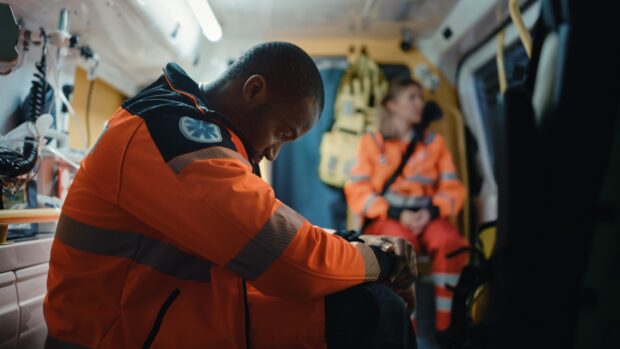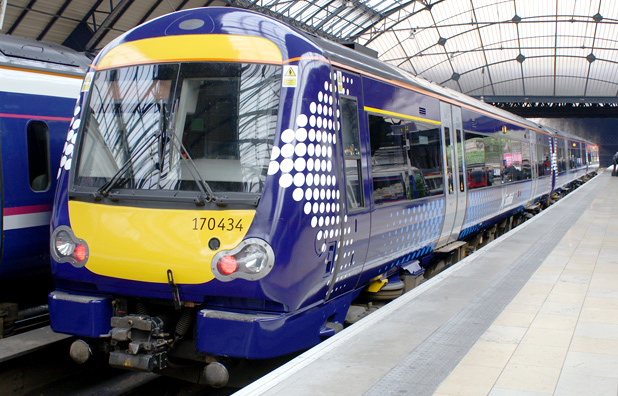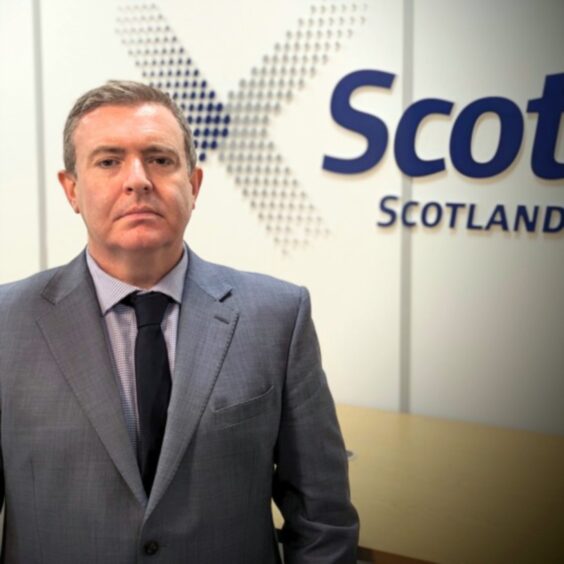
A total of 51 local government workers are physically or verbally assaulted every day in a growing pattern of aggressive behaviour towards frontline staff.
Figures obtained by the Sunday Post under Freedom of Information laws show that 17 of Scotland’s 32 councils have seen a marked increase in attacks on staff over the past five years.
The worst affected was Falkirk Council where verbal and physical assaults increased 177% from 298 in 2018-19 to 826 in 2022-23.
In Clackmannanshire, there was a rise of 142%, with 93 incidents reported in 2019 and 467 in 2023, while Dumfries and Galloway reported a 60% increase from 2018 to 2023.
But also recording a rise in assaults were Falkirk, Argyll and Bute, Orkney, East Dunbartonshire, Edinburgh, the Western Isles, Dundee, East Renfrewshire, Fife, Inverclyde, the Scottish Borders, Shetland, South Ayrshire, the Highlands and West Dunbartonshire.
Now union leaders are calling for employers to treat verbal and physical assaults more seriously, and do more to protect staff.
‘It leaves you feeling terrible’
One local government worker, who wished to remain anonymous, told the Sunday Post people’s attitude towards public-sector staff was deteriorating.
They said: “Over the past year, I’ve seen more employees that have been treated worse by people.
“People tend to think that because we work in the public sector they can in a way abuse us more…that it’s all right for them to shout and scream at us. It’s us that are left feeling shaken after the encounter.
“It leaves you feeling terrible. It’s really affecting people. There needs to be more being done to tackle this.”
Last year a Scottish Government report found violence towards staff in schools was rising significantly, with 67% of the teachers and school support workers having encountered verbal abuse. More than half had dealt with physical aggression between students.
A teacher, who wished to remain anonymous, told of the issues they were currently facing with pupils.
“We had a member of staff who was assaulted by a pupil, she had an object thrown at her and her mouth was cut,” they said.
“One boy got into the main kitchen after jumping over the dinner counter. The dinner ladies had to form a guard of honour around the deep-fat fryer. He threw food and punched one of the dinner ladies.
“We have staff basically getting assaulted every week. It’s swept under the carpet.
“We have a teacher off at the moment with work-related stress. Before Christmas, I was having chest pain and anxiety. I thought I can’t do this any more.”
Scott Donohoe, chairman of the health and safety committee at public service union Unison, said that no one should face violence and abusive behaviour at work.
He said: “The reality is we do not know the true scale of the problem as many employers do not hold or gather information about assaults on their staff. We need action to tackle violence and aggression in the workplace. We need action by employers and stronger legislation, regulation and oversight by the government.”
Unacceptable violence
Alex Rowley MSP said the research exposed the level of threats workers faced on a day-to-day basis and has to be addressed.
He said: “Research has exposed the level of threats and violence workers are having to face on a daily basis. It is quite simply not acceptable and requires the government, employers, unions and public bodies to come together and find a way forward that addresses the issues. No one should have to expect violence or aggression at work and any failure to address this as a matter of urgency is, frankly, unacceptable.”
The Scottish Government is urging those who have been affected by verbal or physical assaults to contact Police Scotland. It said: “All workers, including local government workers, deserve protection from abuse and violence, and employers have a key role in taking the necessary steps to protect their staff.
“We encourage everyone to report crimes to Police Scotland. The courts have extensive powers to deal robustly with assaults – with sentences all the way up to life imprisonment available.”
Paramedic attacks
Paramedics in Scotland have been subjected to almost 1,500 incidents of verbal or physical abuse in five years.
Statistics from 2018 to 2022 found a staggering 1,418 incidents had been reported by paramedics – with 276 taking place in 2022.
The highest number of times when paramedics faced verbal or physical violence was in 2019, with 315 events reported, the highest number within the five-year period.
Karen Leonard, GMB Scotland organiser, said many incidents are never formally recorded, meaning that the scale of abuse facing crews has not been properly assessed or investigated.
She said: “These figures should shock every Scot, but will not surprise a single ambulance worker.
“Crews do an incredibly important job in stressful, difficult circumstances and deserve every possible protection.
“Our members go into our communities to save lives, but are putting their own safety at risk. No-one should have to put up with that for simply doing their job, least of all those who are there to protect us.
“As a society, we must make absolutely clear that this violence and abuse is beyond the pale and will not be accepted.
“Thankfully, the overwhelming majority of people appreciate the work our members do, but incidents like this are far too common and cannot be tolerated.”
GMB Scotland research has revealed that ambulance workers in Scotland suffered almost 800 violent attacks in the line of duty over the last five years – with 773 attacks, including 16 sexual assaults, recorded since 2017.
Last year, 160 assaults were recorded on Scottish Ambulance Service staff, a five-year high.
More than one in five railway staff face verbal or physical attack

Railway staff have seen a dramatic increase in verbal and physical abuse in the last six years.
The Sunday Post can reveal that there have been 1,345 total registered assaults since 2018, which is equivalent to more than one in five of ScotRail’s workforce facing attacks, with 27% of rail staff facing some form of abuse.
The information, which came from a Freedom of Information request, also found that there were fewer physical attacks than verbal attacks.
A total of 393 physical attacks have taken place since 2018.
There have been 952 verbal attacks, with the highest number occurring during the 2022/2023 period.
Phil Campbell, ScotRail customer operations director, said: “All rail staff have the right to go about their day in peace without fear of harassment or abuse.
“ScotRail works closely with the British Transport Police, government and trade unions to ensure Scotland’s Railway is a safe environment in which to work.”
‘If people are stressed, they are reactive’
By Dr Karen Goodall, Academic psychologist
The rise in violence is cross-sector and I think it is a really complex issue.
However, we know from research that where there is economic hardship or big changes in society you quite often see a rise in violence.
We’ve had a number of years of austerity in this country and it’s also a country where there are quite big disparities between people who are economically well off and people who really aren’t, so I think that comparison really intensifies it for people who are struggling.
Then adding to that we’ve had Covid which has had a big impact on families and young people and we’re just starting to see the impact from that coming through now.
I think stress is a big factor, it’s always a complex issue but when people are stressed and overwhelmed they are much more reactive.
We have seen a big cut in services and that is perhaps making some people more stressed.
If someone is becoming verbally aggressive and you’re stressed, your natural response is to be quite reactive to that and so you can get a kind of escalation.
So I think there is a huge benefit in training staff so that they know how to de-escalate a situation.
Of course, to some extent people learn that on the job from more experienced staff. Often the key is to acknowledge someone’s distress – and that can help to de-escalate a situation.
It’s difficult to say what would combat it, but things that can help would include having a clear view of tolerance and policy that you have in your workplace.
Also helpful is having opportunities for your staff to debrief, so if something happens they are not expected to go right back to work.
They would have a supervisor or someone that they would go talk to – maybe explain how it’s impacted them.

Enjoy the convenience of having The Sunday Post delivered as a digital ePaper straight to your smartphone, tablet or computer.
Subscribe for only £5.49 a month and enjoy all the benefits of the printed paper as a digital replica.
Subscribe

